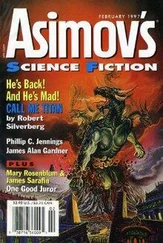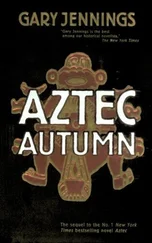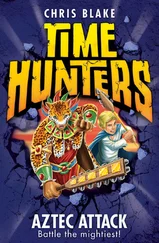Gary Jennings - Aztec
Здесь есть возможность читать онлайн «Gary Jennings - Aztec» весь текст электронной книги совершенно бесплатно (целиком полную версию без сокращений). В некоторых случаях можно слушать аудио, скачать через торрент в формате fb2 и присутствует краткое содержание. Жанр: Старинная литература, на английском языке. Описание произведения, (предисловие) а так же отзывы посетителей доступны на портале библиотеки ЛибКат.
- Название:Aztec
- Автор:
- Жанр:
- Год:неизвестен
- ISBN:нет данных
- Рейтинг книги:4 / 5. Голосов: 1
-
Избранное:Добавить в избранное
- Отзывы:
-
Ваша оценка:
- 80
- 1
- 2
- 3
- 4
- 5
Aztec: краткое содержание, описание и аннотация
Предлагаем к чтению аннотацию, описание, краткое содержание или предисловие (зависит от того, что написал сам автор книги «Aztec»). Если вы не нашли необходимую информацию о книге — напишите в комментариях, мы постараемся отыскать её.
"Anyone who reads, anyone who still lusts for adventure or that book you can't put down, will glory in Aztec."--Los Angeles Times
Aztec
Aztec
Aztec — читать онлайн бесплатно полную книгу (весь текст) целиком
Ниже представлен текст книги, разбитый по страницам. Система сохранения места последней прочитанной страницы, позволяет с удобством читать онлайн бесплатно книгу «Aztec», без необходимости каждый раз заново искать на чём Вы остановились. Поставьте закладку, и сможете в любой момент перейти на страницу, на которой закончили чтение.
Интервал:
Закладка:
Just as our practice arrows, javelins, and spears were tipped with óli gum, so were our mock maquahuime made harmless. The stave was of light, soft wood, so the sword would break before it dealt a too punishing blow. And instead of obsidian chips, the edges were outlined only with tufts of feather down. Before any two students fought a sword duel, the Master would wet those tufts with red paint, so that every blow received would register as vividly as a real wound, and the mark would last almost as long. In a very short time, I was cross-hatched with wound marks, face and body, and I was quite embarrassed to be seen in public. Then it was that I requested a private audience with our cuáchic. He was a tough old man, hard as obsidian, and probably uneducated in anything besides war, but he was no stupid clod.
I stooped to make the gesture of kissing the earth and, still kneeling, said, "Master Blood Glutton, you already know that my eyesight is poor. I fear you are wasting time and patience in trying to teach me to soldier. If these marks on my body were real wounds, I should have been dead long since."
"So?" he said coolly. Then he squatted to my level. "Fogbound, I will tell you of a man I once met down in Quautemálan, the country of The Tangled Wood. Those people, as perhaps you know, are all timorous of death. This particular man scampered from every least suspicion of danger. He avoided the most natural risks of existence. He burrowed away in snug security. He surrounded himself with physicians and priests and sorcerers. He ate only the most nutritious foods, and he seized eagerly on every life-preserving potion he heard of. No man ever took better care of his life. He lived only to go on living."
I waited for more, but he said no more, so I asked, "What became of him, Master Cuáchic?"
"He died."
"That is all?"
"What else ever becomes of any man? I no longer remember even his name. No one remembers anything at all about him, except that he lived and then he died."
After another silence, I said, "Master, I know that if I am slain in war my dying will nourish the gods, and they will amply reward me in the afterworld, and perhaps my name will not be forgotten. But might I not be of some service in this world for a while before I achieve my dying?"
"Strike just one telling blow in battle, my boy. Then, even if you are slain the next moment, you will have done something with your life. More than all those men who merely drudge to exist until the gods tire of watching their futility and sweep them off to oblivion." Blood Glutton stood up. "Here, Fogbound, this is my own maquahuitl. It long served me well. Just feel the heft of it."
I will admit that I experienced a thrill when for the first time I held a real sword, not a toy weapon of corkwood and feathers.
It was most atrociously heavy, but its very weight said, "I am power."
"I see that you lift it and swing it with one hand," observed the Master. "Not many boys your age could do that. Now step over here, Fogbound. This is a sturdy nopali. Give it a killing stroke."
The cactus was an old one, of nearly tree size. Its spiny green lobes were like paddles, and its barked brown trunk was as thick as my waist. I swung the maquahuitl experimentally, with my right hand only, and the obsidian edge bit into the cactus wood with a hungry tchunk! I wiggled the blade loose, took the handle in both hands, swung the sword far back behind me, then struck with all my force. I had expected the blade to cut rather more deeply, but I was truly surprised when it slashed cleanly all the way through the trunk, splashing its sap like colorless blood. The nopali came crashing down, and the Master and I both had to leap nimbly away to avoid the falling mass of sharp spines.
"Ayyo, Fogbound!" Blood Glutton said admiringly. "Whatever attributes you lack, you do have the strength of a born warrior."
I flushed with pride and pleasure, but I had to say, "Yes, Master, I can strike and kill. But what of my dim vision? Suppose I were to strike the wrong man. One of our own."
"No cuáchic in command of novice warriors would ever put you in a position to do so. In a War of Flowers, he might assign you to the Swaddlers who carry the ropes to bind enemy prisoners that they may be brought back for sacrifice. Or in a real war, you might be assigned to the rear-guard Swallowers whose knives give merciful release to those comrades and foes left lying wounded when the battle has swept on past them."
"Swallowers and Swaddlers," I mustered. "Hardly heroic duties to win me reward in the afterworld."
"You spoke of this world," the Master sternly reminded me, "and of service, not heroism. Even the humblest can serve. I remember when we marched into the insolent city of Tlaltelólco, to annex it to our Tenochtítlan. That city's warriors battled us in the streets, of course, but its women, children, and old dodderers stood upon the housetops and threw down at us large rocks, nests full of angry wasps, even handfuls of their own excrement."
Right here, my lord scribes, I had better make clear that, among the different kinds of wars we Mexíca fought, the battle for Tlaltelólco had been an exceptional case. Our Revered Speaker Axayácatl simply found it necessary to subjugate that haughty city, to deprive it of independent rule, and forcibly to make its people render allegiance to our one great island capital of Tenochtítlan. But, as a general rule, our wars against other peoples were not for conquest—at least not in the sense that your armies have conquered all of this New Spain and made it an abject colony of your Mother Spain.
No, we might defeat and humble another nation, but we would not obliterate it from the earth. We fought to prove our own might and to exact tribute from the less mighty. When a nation surrendered and acknowledged fealty to us Mexíca, it was given a tally of its native resources and products—gold, spices, óli, whatever—that henceforth it would annually deliver in specified quantities to our Revered Speaker. And it would be held subject to conscription of its fighting men, when and if they should be needed to march alongside us Mexíca.
But that nation would retain its name and sovereignty, its own ruler, its accustomed way of life, and its preferred form of religion. We would not impose on it any of our laws, customs, or gods. Our war god Huitzilopóchtli, for example, was our god. Under his care the Mexíca were a people set apart from others and above them, and we would not share that god or let him be shared. Quite the contrary. In many defeated nations we discovered new gods or novel manifestations of our known gods, and, if they appealed to us, our armies brought home copies of their statues for us to set in our own temples.
I must tell you, too, that there existed nations from which we never were able to wring tribute or fealty. For instance, contiguous to us in the east there was Cuautexcalan, The Land of the Eagle Crags, usually called by us simply Texcala, The Crags. For some reason, you Spaniards choose to call that land Tlaxcala, which is laughable, since that word means merely tortilla.
Texcala was completely ringed by countries all allied to us Mexíca, hence it was forced to exist like a landlocked island. But Texcala adamantly refused ever to submit in the least degree, which meant that it was cut off from importing many necessities of life. If the Texcalteca had not, however grudgingly, traded with us the sacred copali resin in which their forestland was rich, they would not even have had salt to flavor their food.
As it was, our Uey-Tlatoani severely restricted the amount of trading between us and the Texcalteca—always in expectation of bringing them to submission—so the stubborn Texcalteca perpetually suffered humiliating deprivations. They had to eke out their meager crop of cotton, for example, meaning that even their nobles had to wear mantles woven of only a trace of cotton mixed with coarse hemp or maguey fiber; garments which, in Tenochtítlan, would have been worn only by slaves or children. You can well understand that Texcala harbored an abiding hatred for us Mexíca and, as you well know, it eventually had dire consequences for us, for the Texcalteca, and for all of what is now New Spain.
Читать дальшеИнтервал:
Закладка:
Похожие книги на «Aztec»
Представляем Вашему вниманию похожие книги на «Aztec» списком для выбора. Мы отобрали схожую по названию и смыслу литературу в надежде предоставить читателям больше вариантов отыскать новые, интересные, ещё непрочитанные произведения.
Обсуждение, отзывы о книге «Aztec» и просто собственные мнения читателей. Оставьте ваши комментарии, напишите, что Вы думаете о произведении, его смысле или главных героях. Укажите что конкретно понравилось, а что нет, и почему Вы так считаете.











